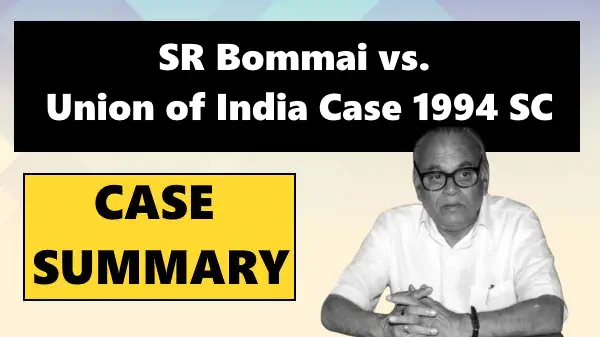Free Courses Sale ends Soon, Get It Now


Free Courses Sale ends Soon, Get It Now



Copyright infringement not intended
Picture Courtesy: lawplanet.in
Context: The SR Bommai judgment played a significant role in the Supreme Court's recent verdict on Article 370, particularly regarding the legality of the President's rule in Jammu and Kashmir during the abrogation process.
Details
Background of the Bommai Case:
Key Rulings of the Bommai Case
Relevance to J&K and Article 370
Conclusion
|
PRACTICE QUESTION Q. How does the concept of centre-state relations in India contribute to the country's federal structure, and what key constitutional provisions govern the distribution of powers and responsibilities between the central government and the state governments? |
© 2024 iasgyan. All right reserved